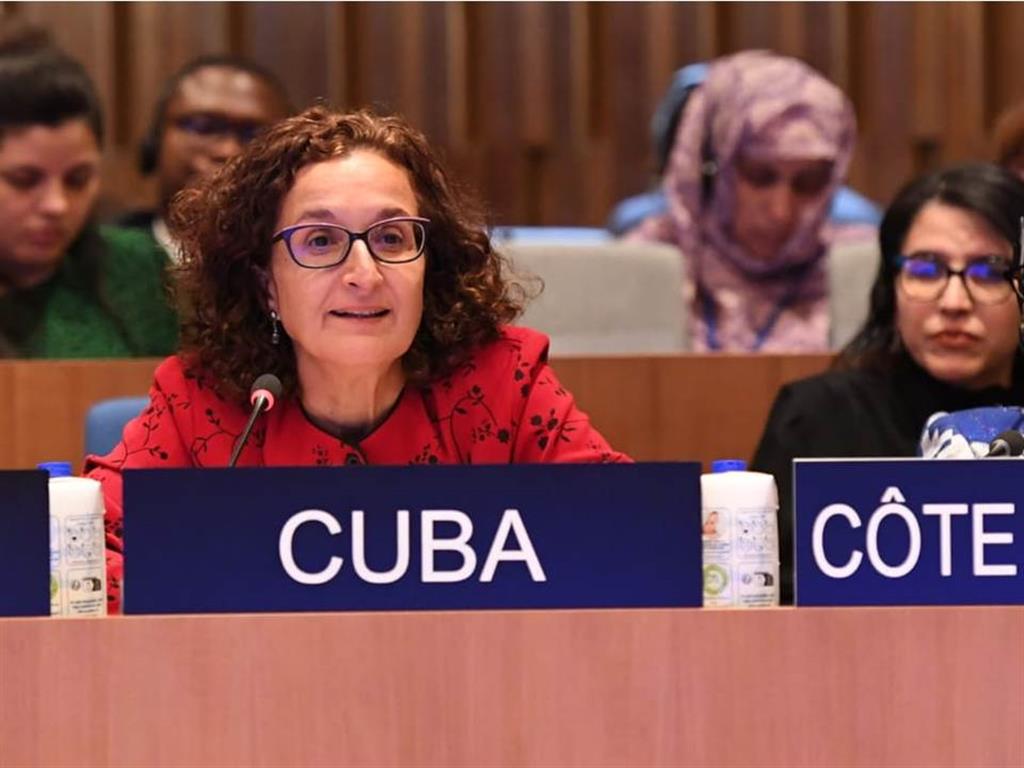Speaking at the general debate of the 219th Session of the UNESCO Executive Council, Cuba’s representative, Ambassador Dulce María Buergo, pointed out that Cuba has been under a blockade for more than 60 years, a policy with an aggravated impact on society due to Washington’s decision to re-include the Caribbean island on its unilateral State Sponsors of Terrorism (SSOT) list.
This scenario further complicates Cuba’s actions in the light of the prevailing complex national and international economic situation, she stressed at the forum, which runs from March 13 to 27, and at which Cuba is also represented by its ambassador to UNESCO, Yahima Esquivel.
Buergo asserted in the Executive Council, of which Cuba is one of its 58 member states, that despite the US blockade, her country works and makes progress under a firm conviction in the implementation of a National Economic and Social Development Plan aligned with the objectives of the United Nations 2030 Agenda.
In this regard, she mentioned priorities such as the continuous improvement of the quality of education, the promotion of cultural diversity, the strengthening of the national science, technology and innovation system, the sustainable use of natural resources and addressing the effects of climate change.
In her speech, the diplomat thanked UNESCO for its traditional support and cooperation, materialized through various ongoing programs.
Regarding the situation in Palestine, the Cuban representative reiterated her repudiation of Israel’s aggression against the Gaza Strip, a war she described as genocide and a massacre, and recalled that it has claimed the lives of more than 30,000 human beings in five months, with a death toll that has had a particular impact on children and women.
It is not only unacceptable, it is incompatible with human dignity, she affirmed in this capital, where she expressed total solidarity with the Palestinian people.
jg/arm/mem/wmr










